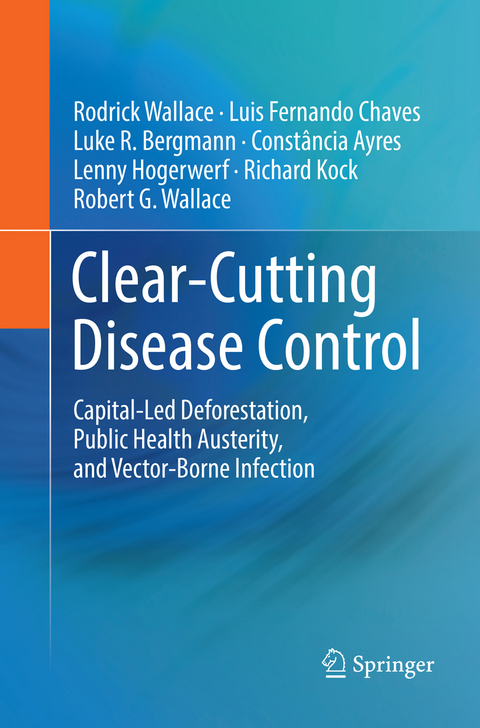
Clear-Cutting Disease Control
Springer International Publishing (Verlag)
9783030102777 (ISBN)
The vector-borne Zika virus joins avian influenza, Ebola, and yellow fever as recent public health crises threatening pandemicity.
By a combination of stochastic modeling and economic geography, this book proposes two key causes together explain the explosive spread of the worst of the vector-borne outbreaks.
Ecosystems in which such pathogens are largely controlled by environmental stochasticity are being drastically streamlined by both agribusiness-led deforestation and deficits in public health and environmental sanitation.
As infectious diseases in an age of nation states and global health programs cannot, as much of the present modeling literature presumes, be described by interacting populations of host, vector, and pathogen alone, a series of control theory models is also introduced here. These models, useful to researchers and health officials alike, explicitly address interactions between government ministries and the pathogens they aim to control.
Rodrick Wallace, Division of Epidemiology, New York State Psychiatric Institute at Columbia University Luis Fernando Chaves, Department of Vector Ecology and Environment, Institute of Tropical Medicine at Nagasaki University Luke Bergmann, Department of Geography, University of Washington Constância Ayres, Vice-Director, Fiocruz, Brazil Lenny Hogerwerf, Centre for Infectious Disease Control, National Institute for Public Health and Environment (RIVM), The Netherlands Richard Kock, Department of Pathology and Pathogen Biology, Royal Veterinary College, London Robert G. Wallace, Institute for Global Studies, University of Minnesota
The Social Context of the Emergence of Vector-Borne Disease.- Modeling Vector-Borne Diseases in a Commoditized Landscape.- Modeling State Interventions.- Implications for Disease Intervention and Modeling.- Mathematical Appendix.- References.
| Erscheinungsdatum | 05.03.2022 |
|---|---|
| Zusatzinfo | X, 68 p. 14 illus., 5 illus. in color. |
| Verlagsort | Cham |
| Sprache | englisch |
| Maße | 155 x 235 mm |
| Gewicht | 141 g |
| Themenwelt | Studium ► Querschnittsbereiche ► Epidemiologie / Med. Biometrie |
| Studium ► Querschnittsbereiche ► Prävention / Gesundheitsförderung | |
| Schlagworte | commerical agriculture • Data Rate theorem • deforestation • Malaria • neoliberal • Ross-MacDonald Model • stochastic stabilization • vector-borne infection • Zika |
| ISBN-13 | 9783030102777 / 9783030102777 |
| Zustand | Neuware |
| Informationen gemäß Produktsicherheitsverordnung (GPSR) | |
| Haben Sie eine Frage zum Produkt? |
aus dem Bereich


